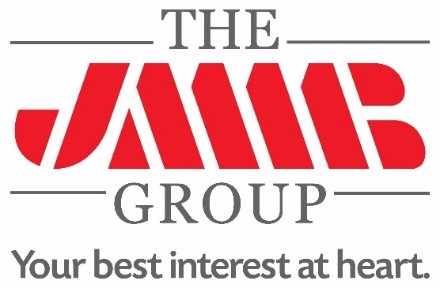A deal that left more questions than answers
What did Donovan Lewis, Chairman of Three Bears see in Salada Foods that nobody else saw? How about a pre-tax profit of JA$482,906,847.38
The latter part of 2008 saw Christopher Berry, Chairman of Mayberry Investments and Donovan Lewis, Chairman of Three Bears in a one sided battle for control of Salada Foods. What did they see and know that other players in the market didn’t?
On the 15th July 2008, the announcement on the Jamaica Stock Exchange (JSE) website was that “Salada Proposed A Stock Split”. Salada Foods Jamaica Ltd advised that at a meeting of the company’s Board of Directors to be held on July 22, 2008, the directors would be considering a split of the company’s share.
On the 25th of July in 2008, the following was posted on the JSE website “Stock Split-Salada Foods.”
“The Board of Directors of Salada Foods Limited has advised that the Directors have decided on the following matters at its meeting held on July 22, 2008:
a. To increase the number of authorized shares in the company from ten million four hundred thousand to five hundred million ordinary shares of no par value by the creation of four hundred and eighty nine million six hundred thousand new shares of no par value.
b. From the new shares created the company will issue nine new ordinary shares for every one ordinary share currently held by each member of the company.
c. To call an Extraordinary General meeting of the shareholders’ to be held on August 28, 2008, at 3 p.m., at the Hilton Kingston Hotel to put forward the above stated Ordinary resolutions and
d. To put forward at the meeting Special resolution for the adoption of Articles of Incorporation of the company and cancel the existing Articles and Memorandum in substitution therefore. “
There was no indication from this report what the intention of this move might be; was it to increase the company’s share capital to fund projected growth and expansion, or was it designed to raise funds to pay down expensive debt?.
At the time, the company’s stock was trading between JA$130 and JA$135 per unit having started the year at JA$44 and would go as high as JA$150 before the end of the year on very low trading volumes (see table below). It could therefore be assumed that the stock split was designed to allow the shares to trade in smaller denominations thus attracting more investors. But was this the real value of the stock? Or was this the result of rampant speculation driving the price up?
SALADA MONTHLY
TRADING VOLUMES 2008
Jan 1,899,214
Feb 90,822
Mar 67,615
Apr 14,014
May 29,386
Jun 850
Jul 3,620
Aug 1,149
Sept 1,235
Oct 1,175
Nov 30,150
Dec 94,500
Did the volume of stock trades warrant this kind of move in the stock price? One could hardly take these low levels of trades as a serious bid to wrestle and secure control. Still, more unanswered questions.
What did Salada have to offer?
For the financial period ending September 30th 2008, Salada posted revenues of $393.8M an increase of $51.1M or 14.9% over 2007. Profit before tax was $114.0M compared to $102.6 for the corresponding period in 2007. Net profit attributable to shareholders was $75.3M compared to $68.2M. Earnings per share (EPS) was $7.25 compared to $6.56.
“I can’t think of anything special or specific at the time that would warrant a stock price war and battle for control of Salada foods, other than a good brand name and reasonable good export growth prospects I don’t see much else”, according to one financial analyst when asked the question. That also seemed to be the perspective of a number of other industry watchers. So what really was it? What did Chris Berry and Donovan Lewis, the two players battling for control, see and know that other players in the market didn’t know and could not see? Was this much ado about nothing or was there really something there? Could it be that there was collusion to drive the stock price up?
One senior business executive suggested that Mayberry’s attempt to secure control by offering $32.50 per share for 51 per cent of the coffee company’s near 10.4 million issued shares was not realistic, as Donovan Lewis controlled just over 60 per cent of Salada, and was not likely to sell to Mayberry to give them the desired control.
So, when Mayberry announced a hostile bid for Salada Foods, at $32.50 per share for 51 per cent of the coffee company’s near 10.4 million issued ordinary shares, investors started to take notice. The offer opened on August 30th and closed September 28th last year. At the time, there were 10,388,320 Salada shares outstanding, which would put Mayberry’s cash offer at approximately J$172.2 million.
The Mayberry bid rivalled that of the August 17th 2008 Donovan Lewis-controlled Three Bears’ offer of $25.82 per share for the remaining 39.77 percent of ordinary stock units in Salada. Mayberry said its cash offer had long-term benefits for the company, including profitability growth potential.
There was, as would be expected, varying views by analysts on the offers. According to one published view, “The move to acquire a 51 per cent shareholding in Salada might be an attempt by Mayberry to prevent Three Bears from increasing its shareholding in Salada by as much as 80 per cent and subsequently delisting the company”. However published statements attributed to Donovan Lewis confirmed that he had no intentions of delisting the company, and was only responding to take-over rules triggered by his current holdings. Others felt it could diversify Mayberry’s business and boost Salada’s share price.
Three Bears, which is based in the British Virgin Islands, surpassed the 50 per cent threshold to trigger a mandatory take-over bid when Lewis or companies controlled by him acquired Three Bears from the Caribbean Investment Fund (CIF) at the end of 2006.
The deal gave Three Bears 2,052,000 ordinary stock units in Salada. Lewis, through Three Bears, subsequently purchased a further 2,018,981, ordinary Salada stock units from the CIF. The combined acquisitions gave Three Bears 60.23 per cent ownership of Salada.
Chief Executive Officer of Mayberry, Gary Peart, in published media reports last year was quoted as saying that “his (Mayberry) firm was prepared to offer more than Three Bears as it believes the acquisition of shares in Salada has sound, long-term benefits.”
“We are prepared to offer close to 26 per cent ($6.68) above the Three Bears’ take-over offer because we believe that the acquisition of shares in Salada has sound, long-term benefit. Salada presents the profile and profitability growth potential that we look for in companies to include in our acquisition strategy going forward, though it’s continuing profitability is not a certainty,” Peart also said.
It’s interesting to note that both bids were significantly below Salada’s then market price of $45.
This begged answers to the following questions.
What triggered the stock movement to 45 dollars per share?
Why were the offer prices for the stock below 45, hovering now between JA$26 and JA$32.5 dollars?
What’s the real value of a Salada stock?
And so a bidding war was on for controlling interest in Salada Foods, and as one analyst said, “it could be that Mayberry is banking on the fact that any price below 45 is a good buy and with an expectation that the price may move back up they will be guaranteed a handsome profit on the deal. And with a bidding war now in play with Three Bears, chances are that the prices will begin to move again. So it appears no matter what Mayberry and Three Bears do by virtue of their actions, each may just get the price movement they seek.”
So was the Salada takeover battle an exercise in futility?
“I have over 60 per cent of the shares and I’m not selling. Is he (Chris Berry) really serious?” commented Donovan Lewis, Chairman Three Bears Limited.
The buzz around Salada pushed the stock price to JA$70 per share and in the face of a clear and unequivocal rejection of an offer to buy controlling interest from Donovan Lewis, Chris Berry’s Mayberry Investments was still pushing. The only question to be answered was why?
Given that Donavan Lewis acquired the stock at $25.82 or $161.5m in total value, this represented a whopping $277m gain in less than ten months. Chris Berry did not do too badly either. Mayberry Investments’ 0.3 per cent share holdings made roughly $1.4 million based on the stock price. Investment managers were reported to be saying at the time that the stock price might even climb further to $80.
The Salada Board subsequently announced that Mayberry had served a written notice upon the Company increasing its take-over bid price from J$32.50 per stock unit to J$40.08 per stock unit. The new price valued the Mayberry bid at $212 million. In response, the coffee company called an urgent meeting of its Board of Directors on September 19, 2008 to consider the Mayberry increased offer.
Mayberry’s move was ahead of the Board’s recommendation that shareholders reject the original bid in August of $172 million, or $32.50 per share, to gain fifty-one per cent (51%) of Salada, rivalling the mandatory bid of $25.82 made by controlling shareholder, Donovan Lewis’ Three Bears. The Salada Board said it had undervalued the holdings. At $70 per share, Salada was valued at $727.2 million ($70 times 10,388,330 stock units in issue). At that price, Mayberry’s holding, a negligible 31,250 units or 0.3 per cent of the Company was worth $2.2m; while Three Bears, which owns 60.23 per cent of Salada or 6,256,891 units, was worth $438m.
Not selling
To secure its targeted 51 per cent bid, Mayberry would have to woo Three Bears to sell some of its holdings. Lewis however is reported to have again said that he would not sell neither would he improve his offer, calling the Mayberry offer a futile exercise. “I don’t know what they are trying to do; that doesn’t make sense,” he said. “I have over 60 per cent of the shares and I’m not selling. Is he really serious?”
Mayberry however remained undaunted indicating that it saw value in the stock and that responses to the offer had been fair so far, indicating that the price offer was a result of Mayberry’s re-evaluation of the stock.
Lewis said that even at the new price, Mayberry’s rival offer could not succeed. He said that, “no one at the company had approached him to sell and that the new $40.08 offer was neither worth the time nor the effort.”
However, Peart said Salada is an illiquid stock and that the price could jump significantly either way. He argued that a lot of shareholders had already taken up the offer saying they had been trying to sell their shares for years but could not find buyers.
As 2008 came to a close, Salada stock price reached as high as JA$150 per unit, driven largely by speculations. The Directors of Salada Foods subsequently advised that they would do a stock split and shareholders were to receive a ten to one offer, consistent with the resolutions put forward at the Extraordinary General Meeting.
With the stock price at JA$150 per share, the value of Donovan Lewis’ share holding in the company moved from JA$161,552,925 to JA$644,459,773, a gain of JA$482,906,847. Mayberry’s investments now had a pre-tax profit of JA$2,411,875.
Was this the end game? Your guess is as good as mine.
Additional Sources: Jamaica Gleaner, Jamaica Observer, Jamaica Stock Exchange, Internet sources


 Businessuite News24 International2 years ago
Businessuite News24 International2 years ago
 Feedback & What You Think2 years ago
Feedback & What You Think2 years ago
 Marketing & Advertising2 years ago
Marketing & Advertising2 years ago
 Businessuite Women1 year ago
Businessuite Women1 year ago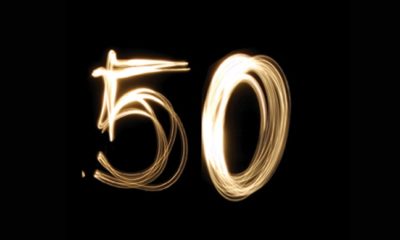
 Businessuite 50 Power and Influence1 year ago
Businessuite 50 Power and Influence1 year ago
 Leadership Conversations1 year ago
Leadership Conversations1 year ago
 Businessuite Markets2 years ago
Businessuite Markets2 years ago
 RANKING2 years ago
RANKING2 years ago


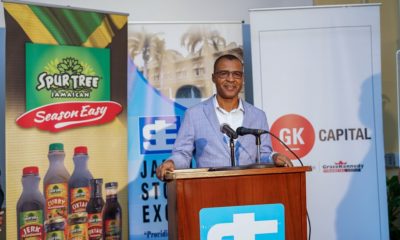





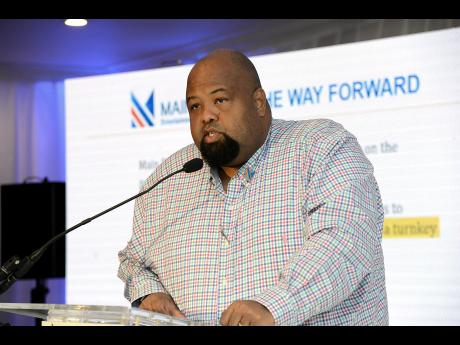
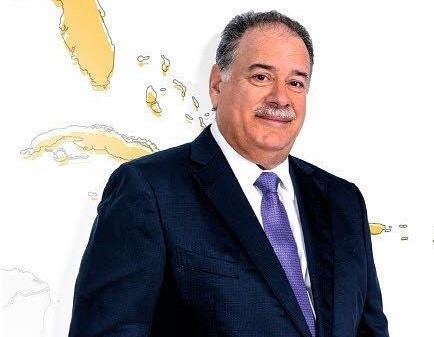

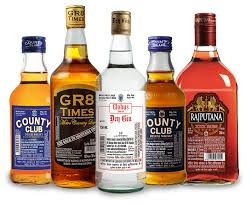 Globus Spirits Ltd is one of the leading players in the Alcohol industry in North India distributing brands in the Consumer Segment including:
Globus Spirits Ltd is one of the leading players in the Alcohol industry in North India distributing brands in the Consumer Segment including: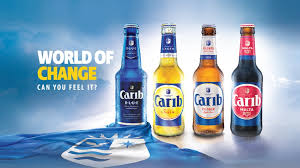 renowned brands, including some of their own home-grown successes. The partnership marks a significant milestone in ANSA McAL Group’s journey, merging cultures and expertise to revolutionise the beer industry in India, with their icon Carib brand and leading the charge.
renowned brands, including some of their own home-grown successes. The partnership marks a significant milestone in ANSA McAL Group’s journey, merging cultures and expertise to revolutionise the beer industry in India, with their icon Carib brand and leading the charge.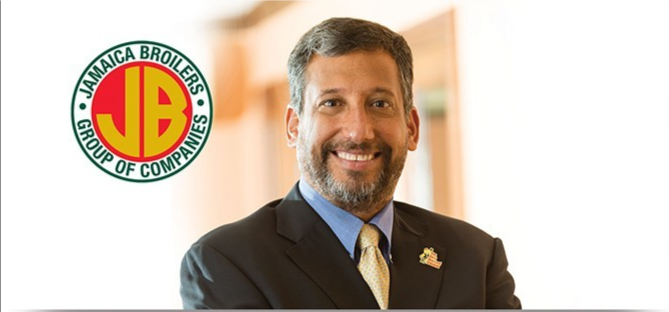
 The Group produced a net profit attributable to shareholders of $1.3 billion, for the quarter ended January 27, 2024. The operations of the Group continue to be strong, and our gross margins are consistent with expectations.
The Group produced a net profit attributable to shareholders of $1.3 billion, for the quarter ended January 27, 2024. The operations of the Group continue to be strong, and our gross margins are consistent with expectations.




